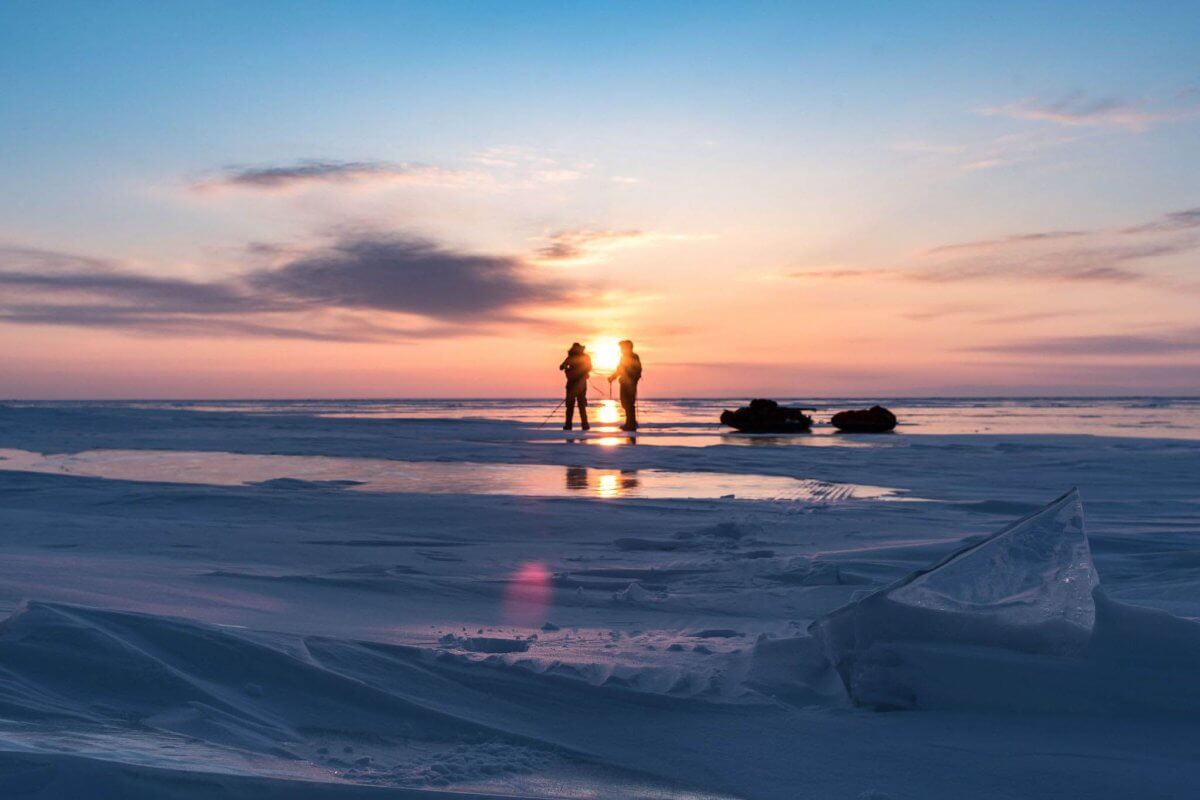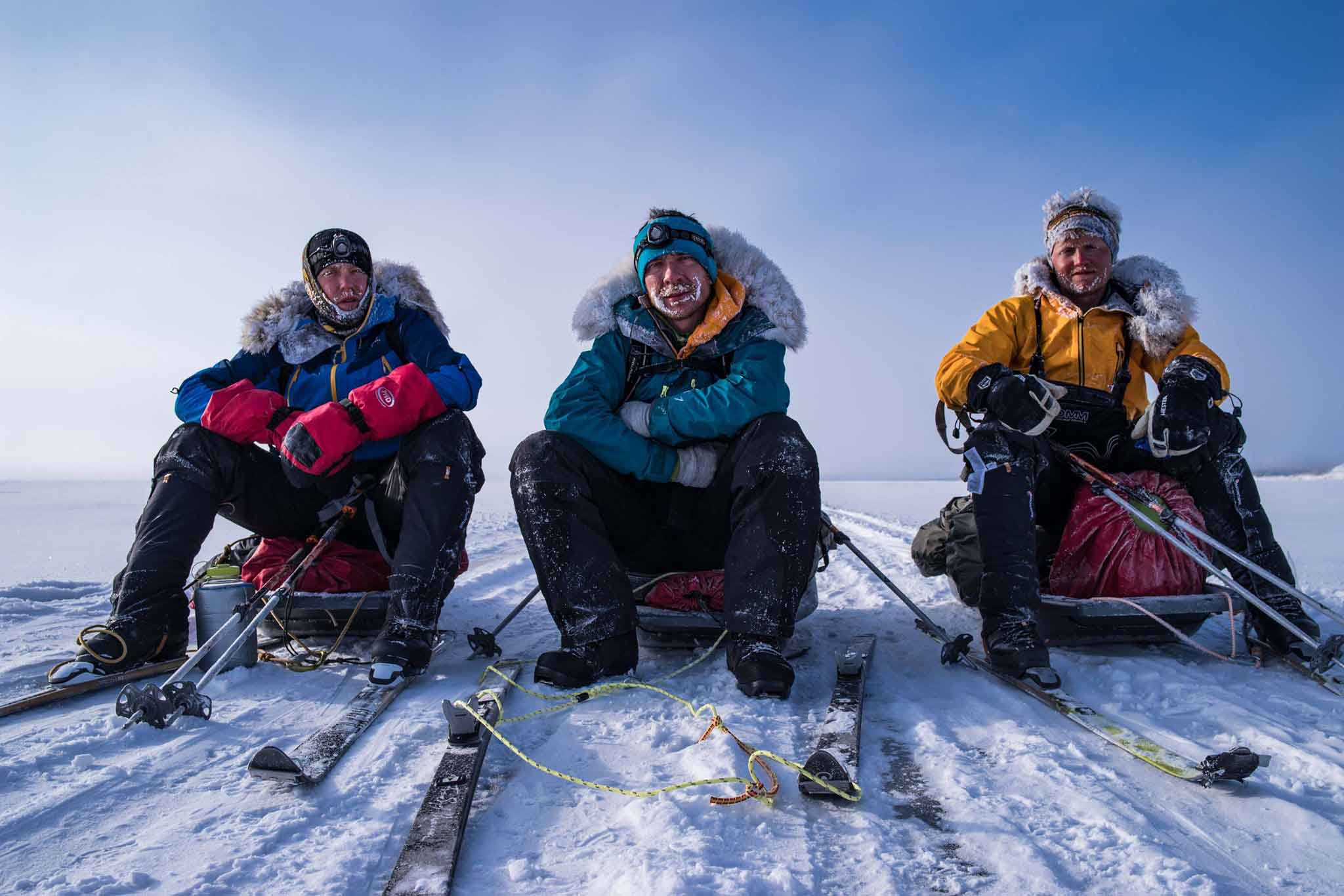
Lake Baikal is widely considered one of the world’s oldest lakes. Situated in the mountainous Russian region of Siberia, where average winter temperatures reach an astonishingly cool -25C, the ancient lake is at least 1,600m deep and holds around 20% of all fresh water on the planet. The area of the lake is almost equal to that of the whole of Belgium. A successful crossing of this frozen river would undoubtedly be achievement enough.
Back in March this year, Rob Trigwell was part of a three-man expedition that broke the world speed record for an unsupported crossing of Siberia’s frozen Lake Baikal. The trio of British endurance athletes took on one of the world’s greatest challenges and came out on top. In some of the harshest, most extreme conditions you could wish to find, the team completed the 639-kilometre journey in 12 days, 21 hours and 13 minutes.
As the team step up their training for another assault on the record in 2019, Rob reflects on their remarkable feat and shares the story behind the challenge, the extreme conditions they faced and the friendships forged for life on the frozen ancient lake.
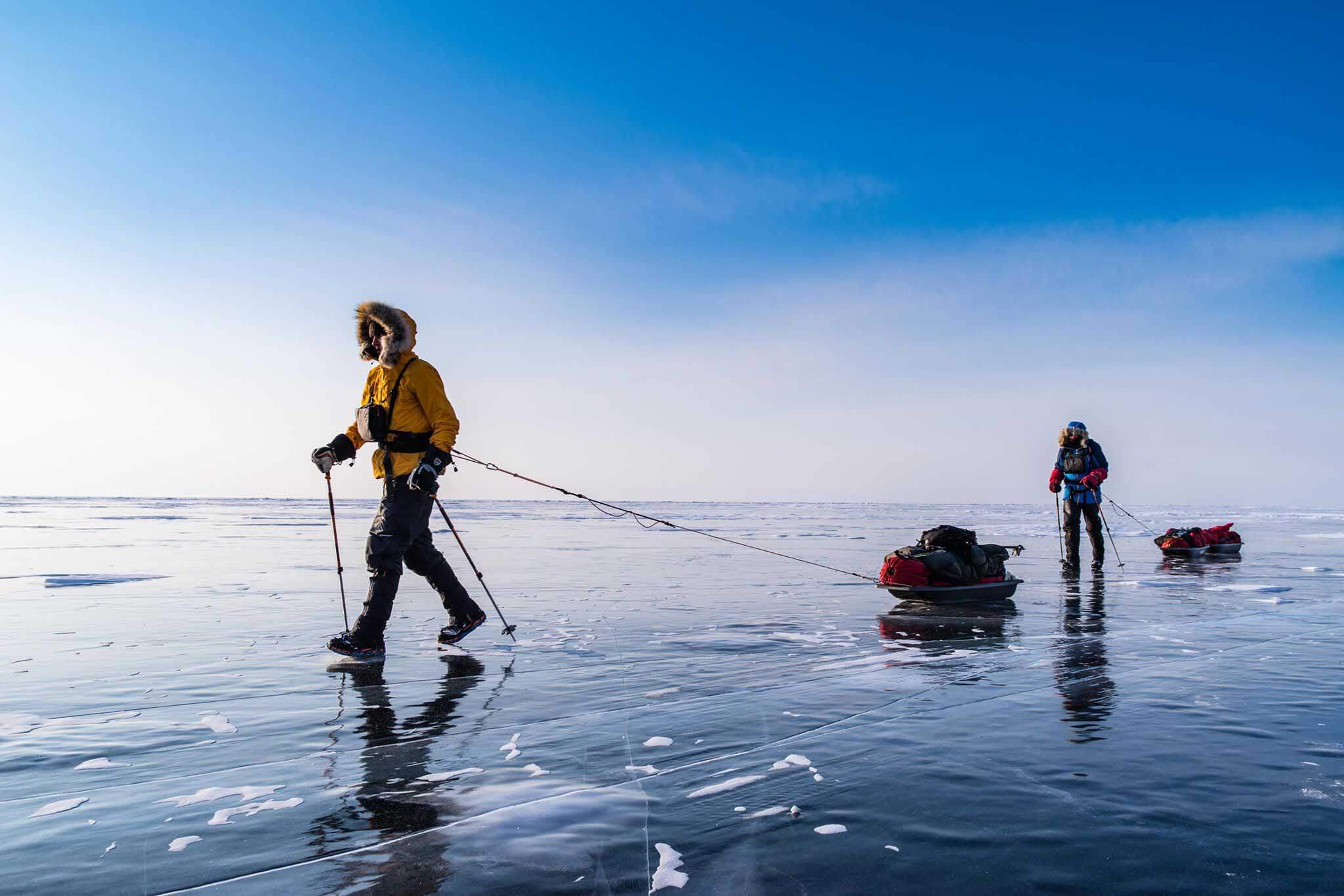
Planting the seed
I’ve had a love for the outdoors ever since I was young. Having been an active cross-country runner during my school days, I naturally transitioned into longer endurance events, primarily through running and triathlons. Unsurprisingly, my curiosity for cold weather environment expeditions grew and grew.
In 2012, while I was working in Libya as an aid worker, I heard about a cold-weather race in Siberia racing over Lake Baikal. I told myself I was going to do it, but as an aid worker working in the Middle East after the Arab Spring, I ended up moving from post-war Libya to Jordan, where the influx of refugees from Syria was becoming more and more. Training wasn’t possible as we worked non-stop to support the incoming refugees. The trip was put on hold, but the idea was set.

After a number of years working in Iraq (pictured above), South Sudan and Myanmar (Rob pictured below with David Milliband, CEO of the International Rescue Committee), I took the plunge and signed up to an Arctic training programme in northern Sweden with Weatherised Training, led by Scott Gilmour. After a week of pulling pulks (an Arctic sled) through the mountains of Arctic Sweden and camping at -25°C, I knew I was hooked.
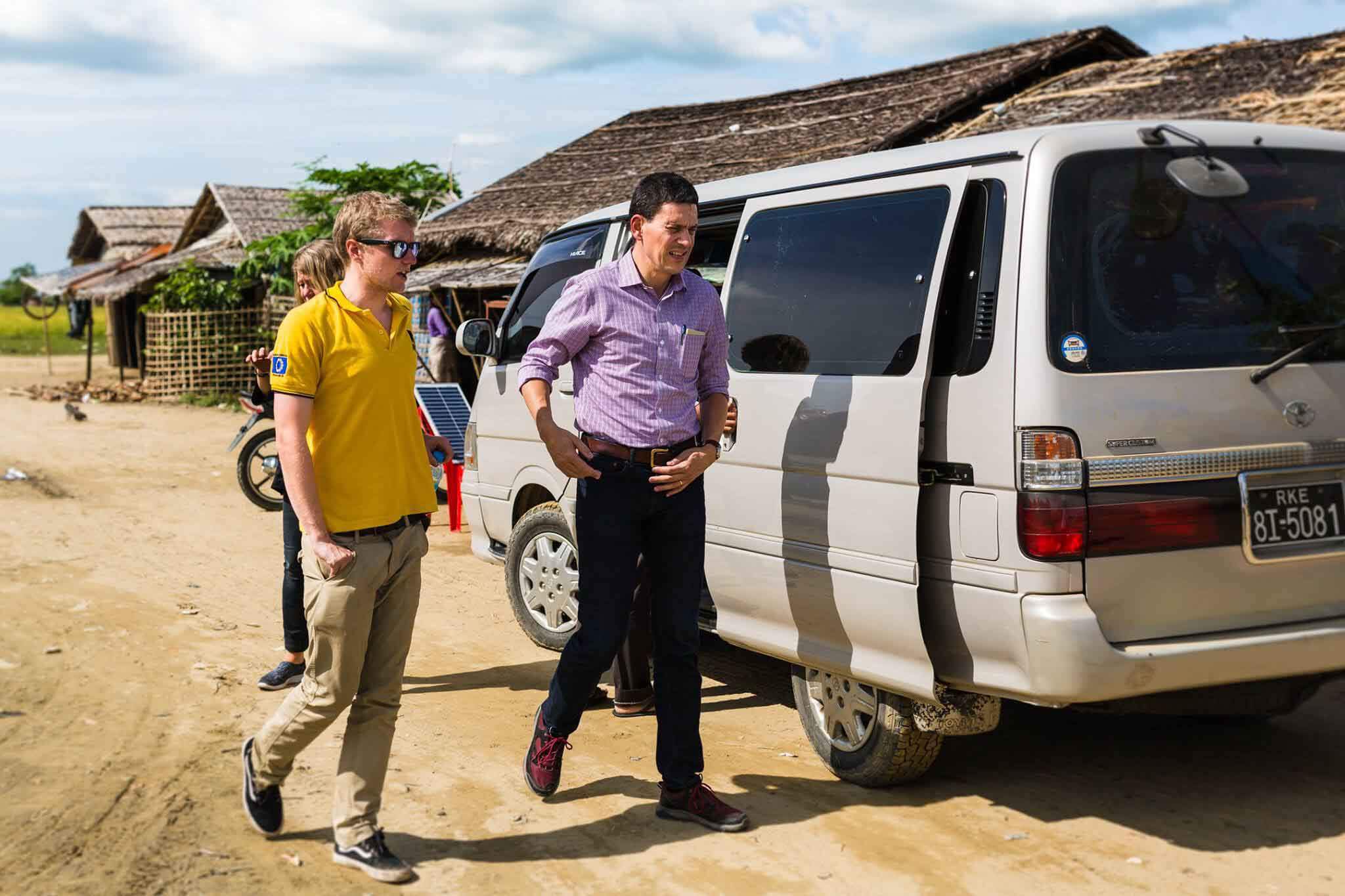
The following year, I went out for the same training week, where I shared a tent with Michael Stevenson. After the week, Scott and I took a longer trip along the mountainous Kungsleden winter trail. We were skiing 16 hours a day, through deep snow and tough terrain.
One night in the tent, we were talking about how we would fare if we did this approach somewhere flat. Baikal instantly sprang to mind. As soon as we got back, we got planning for Baikal 2018 and a possible record attempt.
Forging close friendships
Lake Baikal can be one of the windiest places in the world. The winter of 2018 also saw the largest amount of snowfall in over 50 years. Therefore, some days we faced extreme cold with heavy winds, others were tolerably warm. The expedition had an ebb and flow, very much dictated by the weather.
“Some days we faced extreme cold with heavy winds, others were tolerably warm. The expedition had an ebb and flow, very much dictated by the weather.” Rob Trigwell
Team work is everything in these challenges. It was a three-man team, with 4 pulks – the extra one carrying our tent, fuel and garbage. We took it in turns to carry the “plus 1” pulk on 2-hour rotations. On the flat, smooth ice, this was not too bad, but with the deep snow this became difficult and exhausting. It was always a relief once your turn was done.
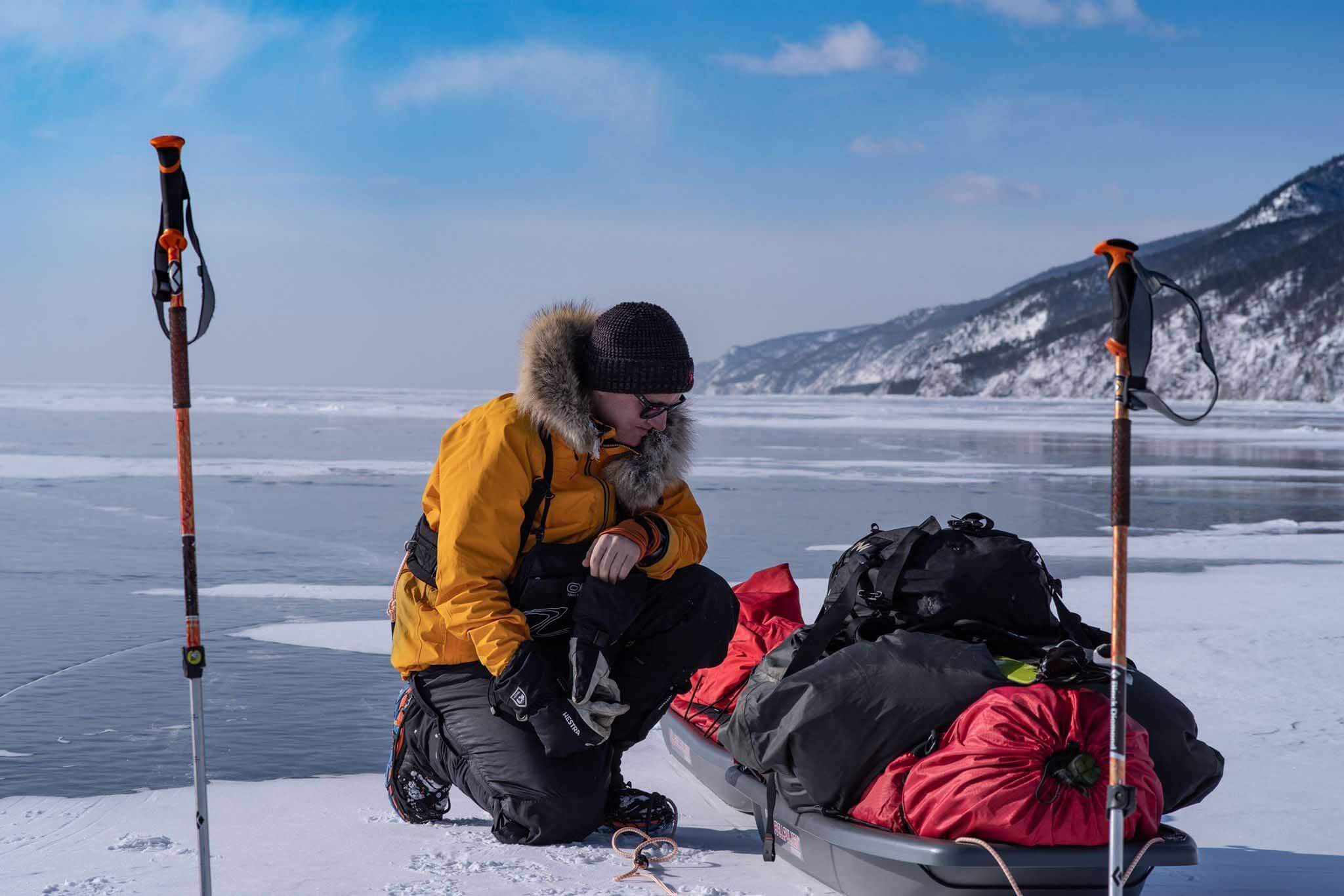
Teamwork is also really important inside the tent. We took the cooking in turns on a daily rotations. This gave free nights to other team members to do some bandaging or gear fixes. The friendship of our team went a long way, and this really fuelled the drive and success of the expedition.
Preparing for success
I was working with the United Nations in Ethiopia in the build up to the expedition. I maintained a good level of cardiovascular fitness by getting out for runs in the morning before the Addis Ababa traffic got too bad. Runs after work, though, were a no-go because of the pollution in the city. My girlfriend and I signed up to circuit training courses in the city in the back of an expat’s garden, and worked on some core exercises.
“A large part of success on these type of expeditions is making sure you have the right gear, eat the right food and all the team know the goals.” Rob Trigwell
A large part of success on these type of expeditions is making sure you have the right gear, eat the right food and all the team know the goals. We had worked as a team and tested the gear the previous years in the Arctic, so we were feeling prepared.

I wore the HOKA Tor Ultra High with some Yaxtrax attached, which was perfect for these conditions. It provided great comfort from the iron-like ice when on your feet for 16-18 hours a day, and provided the necessary insulation from the cold.
Tackling the final stretch
In the final days of the expedition, we pushed ourselves to the limit and covered 135km in 36 hours, during which we slept for just two hours in our bivvy bags outside as setting up the tent would have taken too long.
“The friendship of our team went a long way, and this really fuelled the drive and success of the expedition.” Rob Trigwell
When we finally arrived at the pier at Nizhneangarsk, the recognised finished point, it was a tremendous feeling. I had completed something I had wanted to do for a number of years and spent the last two winters training for. Beating the record was a great bonus and another reason to celebrate with such good friends.
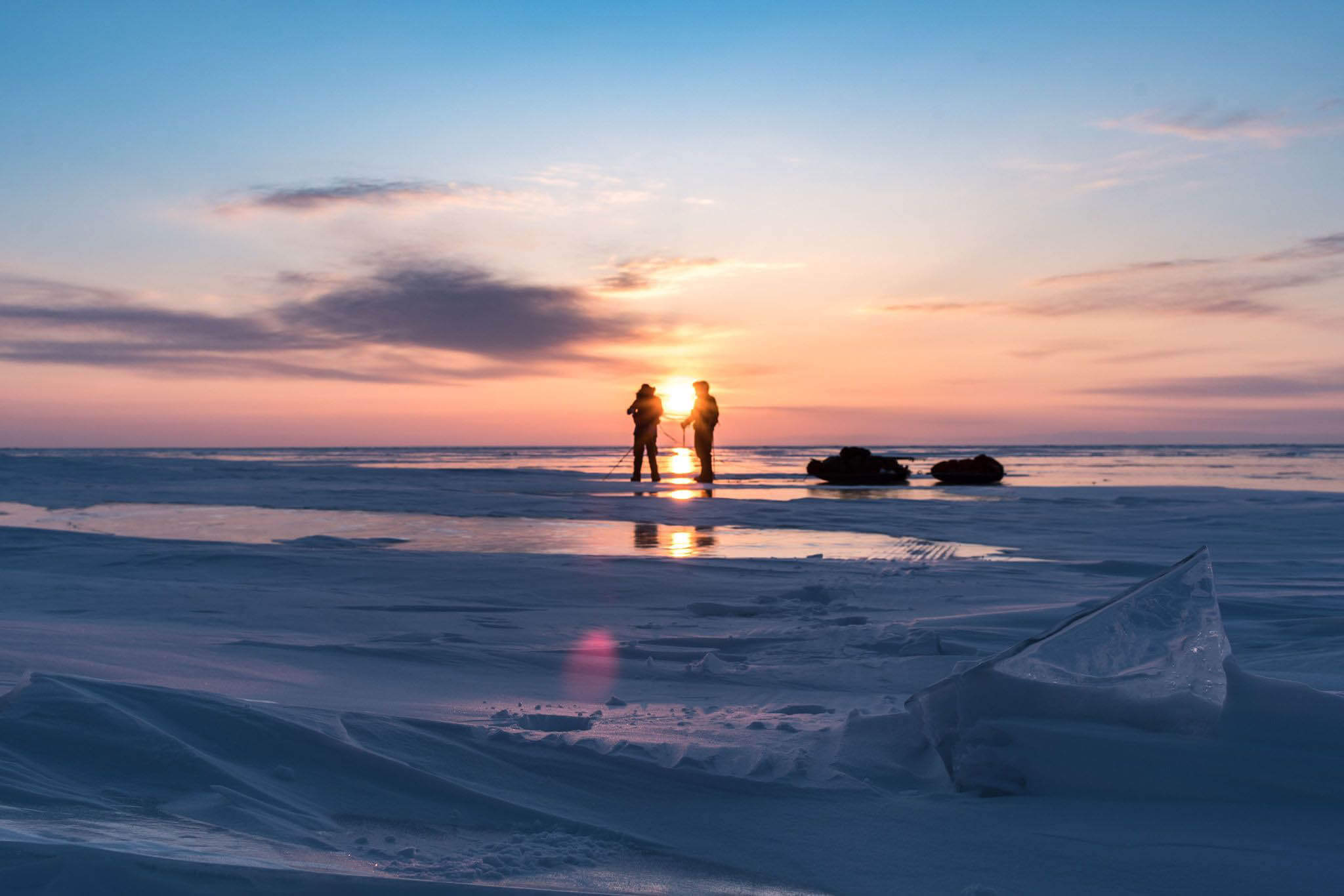
Rob, Michael and Scott are back in training and currently preparing for another record attempt in 2019. Follow their latest expedition on the Frozen Tracks website and Facebook page.
Photo credit: Scott Gilmour
